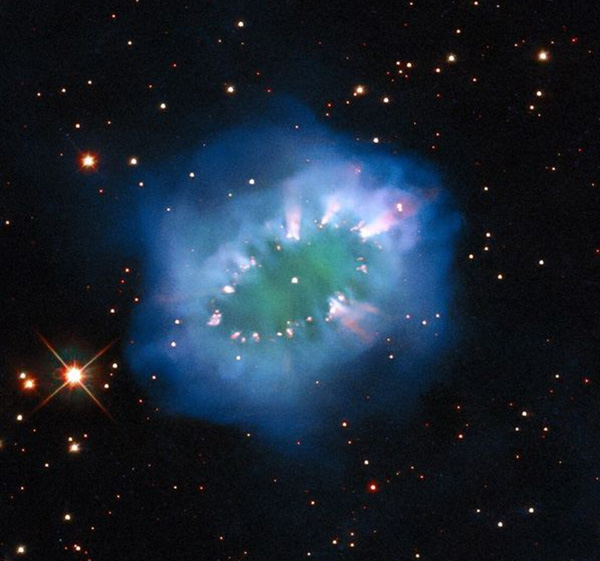Fifteen-thousand light years away in the northern constellation of Sagitta (the Arrow), a pair of aging Sun-like stars orbited each other so closely that the larger of the two eventually completely engulfed the other.
Nasa scientists believe that the smaller star continued orbiting inside its dominant companion, increasing the giant’s rotation rate. The bloated companion star spun so fast that a large part of its gaseous envelope expanded into space.
Due to centrifugal force, most of the gas escaped along the star’s equator, producing bright diamond-like flashes that are actually clumps of dense gas that span 12 trillion miles.
The Hubble telescope captured a beautiful pic of what Nasa has nicknamed the "Necklace Nebula." The space agency shared the photo last week on its Hubble telescope Instagram page, here. As of Sunday night, the post titled "Happy #JewelDay!" has earned more than 84,000 Likes.
Nasa explained that the dominant star and its companion are only a few million miles apart, and appear in the photo as a single bright dot at the center of the formation. Radiating from the center, one can see the glow of oxygen (green), hydrogen (blue) and nitrogen (red).
Credit: Image courtesy of ESA/Hubble & NASA, K. Noll.

No comments:
Post a Comment